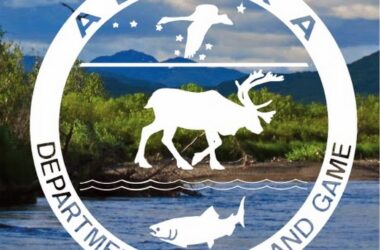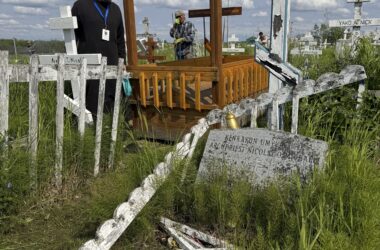Senator Gary Stevens (R) of District C has released his Capitol Report for February 2024.
He first opens his report by introducing some of the big goals for the future of Alaska.
“In the Senate, our objective remains steadfast in seeking solutions to provide essential resources for public schools, ensuring the best possible education for our youngest Alaskans. Additionally, we aim to attract individuals back to the state to bolster our economy through a livable and reasonable retirement. Lastly, finding long-term solutions to address Alaska’s railbelt energy needs is paramount to ensuring residents have the energy to heat their homes. As we go through this legislative session, we will continue to work with our counterparts in the House and the Governor while navigating these challenges Alaska faces,” said Senator Stevens.
Retention & Retirement
Sen. Stevens voted in support of SB 88 which passed the Senate earlier this month. Alaska has been losing valuable teachers, police, and firefighters due to our poor retirement system. Reports show that new employees are less likely to remain in Alaska and more are likely to leave for jobs in other states that provide better retirement programs. Retaining quality employees is a top priority for our Senate Majority. SB 88 allows public employees and teachers to choose between a defined contribution and defined benefit program. The contribution rate can be adjusted to keep the new retirement program solvent. The bill is now in the House and has been referred to the House State Affairs, Labor & Commerce and Finance committees.
Executive Orders
The Senator thanked everyone who has called in for public testimony and shared their comments with my office regarding the Governor’s 12 Executive Orders which he introduced early this session. He is particularly concerned about the proposed changes to the Alaska Marine Highway Board. Currently, two members are appointed by the Speaker of the House of Representatives, two by the President of the Senate, and two by the governor. The governor’s executive order would give him the authority to appoint all six members.
All 12 executive orders were referred to Senate committees for hearings and public testimony. According to the Senator, they have only 60 days (up to March 14th) to approve or disapprove them in a Joint Session. In preparation to potentially reject some or all of the executive orders, the Senate has introduced 12 resolutions of disapproval. These resolutions have also been referred to Senate committees for hearings and each is subject to an up or down vote. Rejection of an executive order takes a majority of the members present in a Joint Session. He says he is working with the House to coordinate a time where both bodies can have the opportunity to vote.
FY 2025 Budget
The Governor released his amended budget on Feb. 15th. Senator Stevens looks forward to seeing his work on the Senate Finance Subcommittees. It is there that the budgets will be reviewed and then have the ability to be advocated for, specifically for the services that are important for the district and the state.
Senate Finance will be holding public testimony on the Fiscal year 2025 SB 186 Operating Budget, SB 187 Capital Budget, and SB 188 Mental Health Budget this upcoming week:
- Wednesday Feb. 21 at 9am: Kodiak, PrinceWilliam Sound, South East, and Offnet (statewide call in). Sign up by 10:15am.
- Wednesday Feb. 21 at 1pm: Fairbanks, Interior, Copper River Valley, and Offnet (statewide call in). Sign up by 2:45pm.
- Thursday Feb. 22 at 9am: Northern and Western AK, Nome, Dillingham, Bethel, etc. Sign up by 10:15am.
Fisheries & Seafood
The Senate and House sent a joint letter last month to the U.S. Department of Agriculture (USDA) to request action on the Alaska Seafood Marketing Institute’s (ASMI’s) request to Thursday Feb. 22 at 1pm: Kenai Peninsula, Anchorage, and Matsu. Please sign up by 2:45pm.
Education Funding
Earlier this month, the House and Senate started discussions on education bill SB 140 to explore options on how the legislature can move forward. This bill now includes a $300 BSA increase and significant policy changes including the loss of control by local school boards, increased classroom sizes, and continued hardship on our dedicated educators. To get to an agreement on the big issues, we may need to wait for the House to pass the bill back to the Senate, then work out the differences in a more formal conference committee. The Senate has continued to advocate for a larger BSA increase to support our schools.
Any further delay in passing SB 140 jeopardizes the bill’s original intent of providing broadband internet funding for schools. This portion of the bill needs to pass by late February or grant funds will be lost. Senator Stevens was pleased to see that the House Finance committee recently held public testimony for HB 193 which contains only the broadband internet funding. Our Senate Finance committee has scheduled this bill for a hearing this coming week pending passage from the House Floor.
- purchase Alaska seafood through the USDA Section 32 program. These purchases can help stabilize the seafood market conditions and decrease inventories prior to our upcoming 2024 fishing season. We shared the letter with our Federal legislators, Senators Murkowski and Sullivan and Rep. Peltola, and have been told that they are meeting with USDA officials to discuss the matter.
- Senator Stevens has also cosponsored SJR 14 which calls on the U.S. Congress and all federal agencies to adopt policies and engage in efforts to improve the competitiveness and resiliency of Alaska’s seafood industry. This resolution has a hearing in Senate Finance on Feb. 23.






